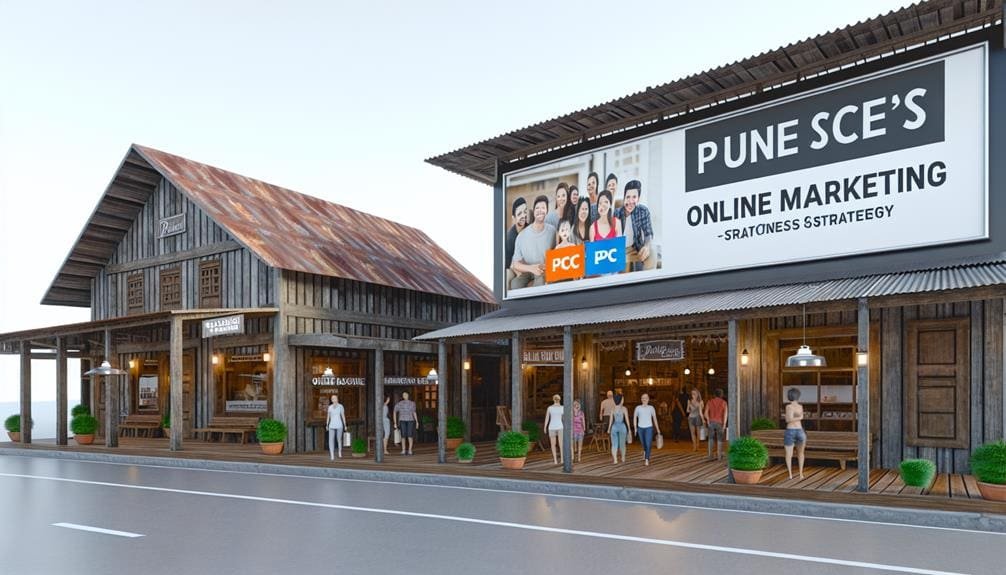5 Best Local PPC Strategies for Healthcare Providers
February 8, 2024 | by Jacob Cavazos

As navigators in the vast ocean of digital marketing, we understand that the beacon guiding healthcare providers to success is a robust local PPC strategy. With our compass set on data-driven insights, we've charted the course for the top five local PPC strategies that have proven to be the most effective. We prioritize account structures that resonate with the local demographic, ensuring each click bears the potential to convert to a meaningful patient interaction. Our bidding strategies are not just about outbidding competitors, but also about smart spending that maximizes ROI. While the intricacies of mobile optimization and geo-fencing might seem daunting, we've broken them down into actionable steps that can significantly enhance local visibility. Lastly, by nailing down conversion tracking, we turn data into actionable intelligence, paving the way for continuous improvement. Stay with us as we explore these strategies, which are not just theoretical best practices but battle-tested methods that can transform how healthcare providers connect with their local communities.
Targeting Hyper-Local Keywords
By honing in on hyper-local keywords, healthcare providers can effectively attract patients from specific neighborhoods or regions, ensuring their PPC campaigns deliver highly targeted visibility. It's about precision; using location extensions and geo-targeting sharpens our focus on local communities, making healthcare services more accessible to those in immediate need.
We know that thorough keyword research is paramount. We're not just throwing darts in the dark; we're using data to zero in on the right keywords that align with local search queries. This approach isn't just smart; it's necessary for standing out in a crowded digital landscape. By tailoring our ad copy and landing pages, we speak directly to the target audience's local healthcare needs, which significantly boosts our conversion rates.
Moreover, we're constantly analyzing geo-data to refine our local PPC strategies. This is not a "set-it-and-forget-it" game. We're optimizing bid strategies based on user locations to maximize the impact of our healthcare PPC campaigns. It's this level of detail that drives the needle, connecting patients to the care they need, right where they are.
Crafting Compelling Ad Copy

Having established the importance of hyper-local keywords, we must now ensure that our ad copy speaks directly to those targeted audiences, addressing their concerns with clear, compelling language that sets us apart. For us healthcare marketers crafting healthcare PPC ads, the power of persuasive ad copy cannot be overstated. Our medical practice must resonate with potential patients through ad copy that not only reflects search volume trends but also incorporates the emotional triggers and unique selling points that drive engagement and conversion.
Our PPC for Doctors ad campaign hinges on the use of ad extensions to provide quick access to critical services like urgent care, while the main body of our ads must deliver a strong, actionable call-to-action (CTA). We'll leverage conversion data to refine our messaging, ensuring the ad copy is not only SEO-optimized but also tailored to prompt decisive action.
In our pursuit of excellence, we're committed to A/B testing variations of our ad copy, stripping away any medical jargon that might confuse prospective patients. By focusing on clarity and accessibility, we'll ensure our ad copy is a beacon that guides patients to choose our medical practice for their healthcare needs.
Prioritizing Mobile Optimization

To effectively engage the ever-growing number of mobile users, it's vital that our healthcare PPC campaigns are meticulously optimized for mobile devices. With the majority of healthcare searches now happening on smartphones rather than desktops, our online presence must cater to this shift. Mobile optimization is not just a trend; it's a core component of successful healthcare marketing.
Here are key elements we focus on to ensure mobile optimization:
- Responsive Design: Landing pages for better user experience across all devices.
- Page Load Speed: Critical for keeping mobile users engaged and reducing bounce rates.
- Clear Calls-to-Action: Tailored for mobile users, ensuring they can navigate and convert with ease.
Our PPC strategies involve creating ad content that's concise and visually appealing on smaller screens. We prioritize user experience by refining our landing pages to load quickly and display properly on all mobile devices. This enhances our visibility on search engines, as Google favors mobile-friendly websites.
Utilizing Geo-Fencing Techniques

We're honing in on geo-fencing techniques to precisely target local audiences and optimize our healthcare PPC campaigns for maximum impact and efficiency. By utilizing geo-fencing, we can ensure our ads appear only in specific locations, which is critical in healthcare advertising where relevance and timeliness are paramount.
Our PPC strategy incorporates precision geo-targeting to optimize bid strategies based on user location. This approach allows us to localize ad campaigns effectively, reaching potential patients in high-traffic areas such as medical districts or near clinics, where they're most likely to require our services. By analyzing geo-data, we identify and exclude locations that are irrelevant to our audience targeting, preventing wastage of our ad spend on non-prospective patients.
Moreover, we're implementing location extensions, enhancing the visibility of our healthcare providers within the search marketing landscape. This not only provides crucial information like addresses and contact details but also improves local PPC strategies by making our healthcare offerings more accessible to the community.
Lastly, we refine our ad campaigns by employing negative keywords, ensuring our healthcare advertising efforts aren't squandered on irrelevant searches. This level of detail in our local PPC strategies ensures our healthcare providers are visible to the right people at the right time.
How Can Healthcare Providers Adapt General PPC Strategies for Local Use?
Healthcare providers can adapt key local PPC strategies by targeting specific local keywords related to their services, utilizing geotargeting to focus on their local area, and creating location-specific ad copy to attract local patients. This can help them reach their target audience more effectively and improve their local visibility.
Implementing Conversion Tracking
By implementing conversion tracking, healthcare providers gain crucial insights into the performance and ROI of their PPC campaigns. This data-driven approach allows us to refine our strategies, ensuring that ad spend is directed towards the most effective campaigns and landing pages. It's key to understand that each click in a PPC initiative for healthcare is not just a number—it's a potential patient seeking care.
Here's why conversion tracking is indispensable:
- Optimize Your Landing Pages: Conversion data reveals how well your landing pages convert traffic into actions, allowing you to make informed improvements.
- Maximize Ad Spend: Understanding which ads drive conversions enables you to allocate budget more effectively, reducing waste and increasing ROI.
- Improve Conversion Rates: By analyzing which campaigns lead to the highest conversion rates, you can replicate success and adjust underperforming ads.
Using tools like Google Ads, we can track a variety of conversions, from form submissions to phone calls. This level of granularity lets us attribute conversions to the correct campaigns and ad groups. By continuously analyzing conversion metrics, we're empowered to optimize bidding strategies and tailor our messaging for the audience that desires mastery—ensuring that our healthcare marketing efforts translate into tangible patient engagements.
Frequently Asked Questions
What Are the 5 P's of Healthcare Marketing?
We're mastering healthcare marketing by leveraging the 5 P's: honing patient profiles, strategizing service promotion, delivering health education, initiating community outreach, and crafting wellness campaigns, all while upholding marketing ethics and enhancing our digital presence.
What Ways Would You Make PPC More Effective?
We'd sharpen PPC effectiveness by refining keyword optimization, implementing ad scheduling, and honing geo-targeting. Rigorous conversion tracking, managing negative keywords, and improving quality score are key. We'll leverage ad extensions, split testing, and optimize landing pages.
What Is the Most Used PPC Platform?
We've found Google Ads to be the most used PPC platform, excelling in keyword research, ad copywriting, and conversion tracking to optimize our budget allocation and improve our Quality Score for superior campaign performance.
What Does PPC Mean in Medical Terms?
We understand PPC in medical contexts relates to patient care quality, insurance policies, and treatment costs, not just billing codes or drug prescriptions. It's about integrating technology to enhance diagnostic procedures and clinical significance.
RELATED POSTS
View all



